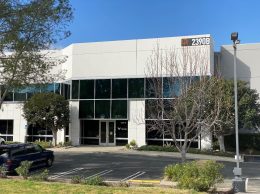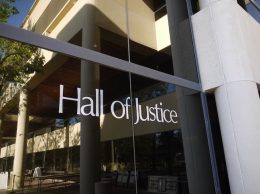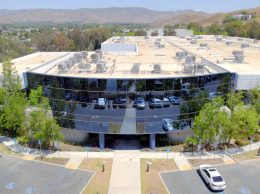Qualstar brass has early edge in proxy fight
IN THIS ARTICLE
- Banking & Finance Topic
- Stephen Nellis Author
By Stephen Nellis Friday, June 22nd, 2012
Gold or white?
Shareholders in Simi Valley-based tech firm Qualstar Corp. grappled with that question on June 20 as a Florida investor group waged an acrimonious proxy fight.
The dissidents, who issued the gold cards, wanted to remove the entire Qualstar board in hopes of shaking loose the cash on its books and reducing executive pay.
The company’s management countered that the investors were making a short-sighted cash grab before they dump shares and crater the price. Qualstar’s leaders said they have installed a new “turnaround specialist” to right the ship and that the cash is necessary to carry out his plan to revitalize its products. Their pitch: play the white card.
The white card appears to have the lead, and the board appears to have survived the proxy challenge, according to preliminary results announced as the Business Times went to press. But the gold-card dissident group has alleged vote-counting problems and said it is “evaluating its legal options.”
All indications are that it was a tough contest. Bill Gervais, a Qualstar co-founder who owns 27 percent of the company and recently stepped down as CEO, had signaled his intent to vote for the current board. Investors who own about 29 percent of the company signaled beforehand that they intended to vote for the dissidents.
Qualstar’s primary products are massive arrays of tape-based hard drives that can back up terabytes of data at a time, an unsexy but widely used technology for large businesses and data centers. Though sales have started to recover from their recession lows, the company has racked up consistent losses since 2007, losing $680,000 on $18.3 million in 2011.
The leader of the insurgency was BKF Capital, based in Boca Raton, Fla., and the owner of 18.2 percent of the company. It fired the first shot in mid-May by demanding a shareholder meeting and board replacement.
The core argument was that Qualstar has too much cash – about $21 million, more than its 2011 revenue – on the books. BKF believed about $12.5 million of that should go back to shareholders, which would net it about $2.3 million.
“What’s going on here is that 70 percent of their total assets are in cash and marketable securities. Unless you’re an investment company – they’re not, they’re a tech company – you don’t need that kind of cash,” said BKF’s Greg Heller. “They get a 1 or 2 percent return on that cash. They haven’t shown how they’re going to use it. Each investor could better invest that cash in a way that’s consistent with their own risk profile.”
Qualstar, which did not return a request for comment, countered that its new CEO, Larry Firestone, has plan in place to stabilize the company’s lagging sales and then begin to grow them. In May, when the proxy challenge was announced, Firestone told investsors that “we believe BFK and [BKF CEO Steven] Bronson are only interested in securing a quick, opportunistic gain, rather than returning Qualstar to profitability in order to enhance shareholder value for the benefit of all of our shareholders.”
The company laid out its plans: Restructure, expand marketing and sales efforts to get beyond a handful of key customers that account for much of its sales, and develop new products. Qualstar’s release called BKF’s board challenge “an incredibly draconian measure and one sure to cause considerable instability during this crucial turn around time.”
But BKF questioned Firestone’s credentials in an open letter to shareholders. “Mr. Firestone’s primary experience, and all his experience in the last 12 years has been as a CFO — he has not in fact been at the helm of any turnaround situation,” the letter reads.
Qualstar blasted back with a release titled “Qualstar Sets The Record Straight Regarding Steven Bronson’s Experience And BKF’s True Interests.” In it, the company alleges that BKF is operating in violation of the federal U.S. Investment Company Act of 1940 as an unregistered investment company and will be forced to sell their shares at a steep loss to be on the right side of the law.
Next came BKF’s open letter to the Qualstar board titled “‘There You Go Again’ Distorting the Facts and Distracting Shareholders from the Issues” calling Qualstar’s accusations “distortions and half-truths.” The group said it has repeated told shareholders it is unlikely that it will be forced to sell its shares to comply with federal laws.
Moreover, BKF argues that Qualstar completely ignored the story of Camarillo-based Interlink Electronics. “This is an operating company that had been losing money for ten years, that Mr. Bronson took control of in 2010 and is now poised for its first profitable year in over ten years,” BKF wrote.
BKF’s arguments have won support among other investors. Lloyd I. Miller III, a Florida investor who owns 4 percent of the company, and Porter Orlin, a New York firm that owns 7.2 percent of Qualstar, questioned the compensation package offered to turnaround CEO Firestone. It guarantees a $300,000 salary, $75,000 signing bonus, $60,000 for Firestone to commute to his home in Colorado and up to $20,000 in relocation reimbursements.
Porter Orlin said in a release that it was concerned about the fact that Firestone’s package was “mostly cash-based, guaranteed, and without share price incentives and targets.”
Related Articles
 Friday, May 6th, 2022
Friday, May 6th, 2022
Real Estate: Home goods company inks $13.9M lease on industrial building in Simi Valley
 Thursday, January 13th, 2022
Thursday, January 13th, 2022








